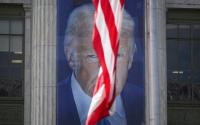19 November 2002
The arrival in Greece of the Turkish leader Recep Tayyip Erdogan, whose party recently won a landslide victory, is symbolic of a new mood of goodwill between Athens and Ankara. Mr Erdogan is, for the moment, prevented from becoming prime minister of Turkey until an order banning him from official office, because of a conviction for fomenting religious hatred, is rescinded. Yet Mr Erdogan's purpose in Greece is vastly more benign, and this initiative – his is the first visit of its kind in a decade – should prove decisive for the resolution of the long-running dispute over Cyprus.
For the first time in decades it is now possible to discern the outlines of a new constitution for the bitterly divided island, which could pave the way for a reunified state entering the European Union in 2004. Such a constitution would be based on a United Nations proposal for a loose Swiss-style confederation of cantons, or "component states", with a relatively weak central authority. It implies that some 85,000 Greek Cypriots will be allowed to return to their homes and property in the Turkish-occupied north and the so-called "Turkish Republic of Northern Cyprus", recognised by none but Turkey, will be abolished. In return, the Greek Prime Minister, Costas Simitis, will support Turkey's request for a firm date for EU accession talks.
Such a deal could be finalised at next month's EU summit in Copenhagen; with the enthusiastic backing of Mr Simitis and Mr Erdogan, it would ensure that their Cypriot counterparts, Glafcos Clerides and Rauf Denktash, follow suit. There is also the added incentive of a joint Nobel peace prize to propel these elderly gentlemen towards historic compromises.
Success is not assured, and there have been many false starts since the Turkish invasion to prevent enosis (union with Greece) in 1974. Kofi Annan and his UN negotiators certainly deserve some credit for the proposed settlement. However, the pace has clearly been forced by the accession of Cyprus to the EU and Turkey's renewed ambition to join, symbolised by a new generation of leaders such as Mr Erdogan who are dedicated to that national goal and the ideal of a united Cyprus in a united Europe.






